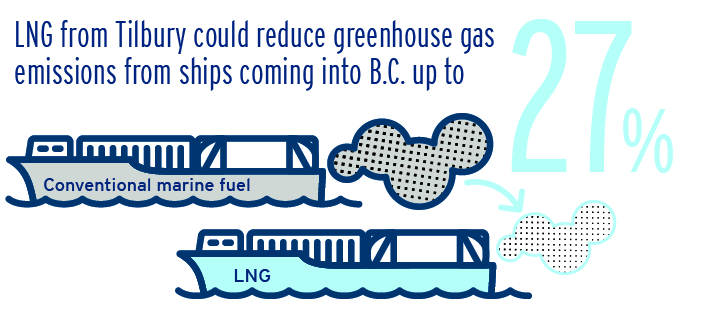Environmental benefits of LNG-fuelled marine vessels
Liquefied natural gas (LNG) can help you navigate the future. We’re helping to reduce overall greenhouse gas (GHG) emissions1 in marine transportation by advancing access to LNG.
LNG reduces ship emissions
A comprehensive, independent 2021 study by Sphera (formerly thinkstep) analyzed the life cycle greenhouse gas (GHG) emissions of the use of LNG used as a marine fuel compared with conventional petroleum-based fuels. It also assessed air quality, comparing local pollutants from vessels using LNG compared with conventional fuels.
The 2nd Life Cycle GHG Emission Study on the Use of LNG as Marine Fuel and Life Cycle GHG Emissions of the LNG Supply at the Port of Vancouver reports concluded that compared to other marine fuels, LNG from Tilbury can lower ship exhaust emissions of:
- sulphur oxides (SOx) to almost zero
- nitrogen oxides (NOx) by up to 95 per cent for diesel cycle engines and up to 85 per cent for Otto cycle engines
- particulate matter (PM) by up to 96 per cent
- GHG emissions by up to 27 per cent over the entire life cycle, depending on the engine technology2

12nd Life Cycle GHG Emission Study on the Use of LNG as Marine Fuel, Sphera 2021.
2Life Cycle GHG Emissions of the LNG Supply at the Port of Vancouver, Sphera, 2020.